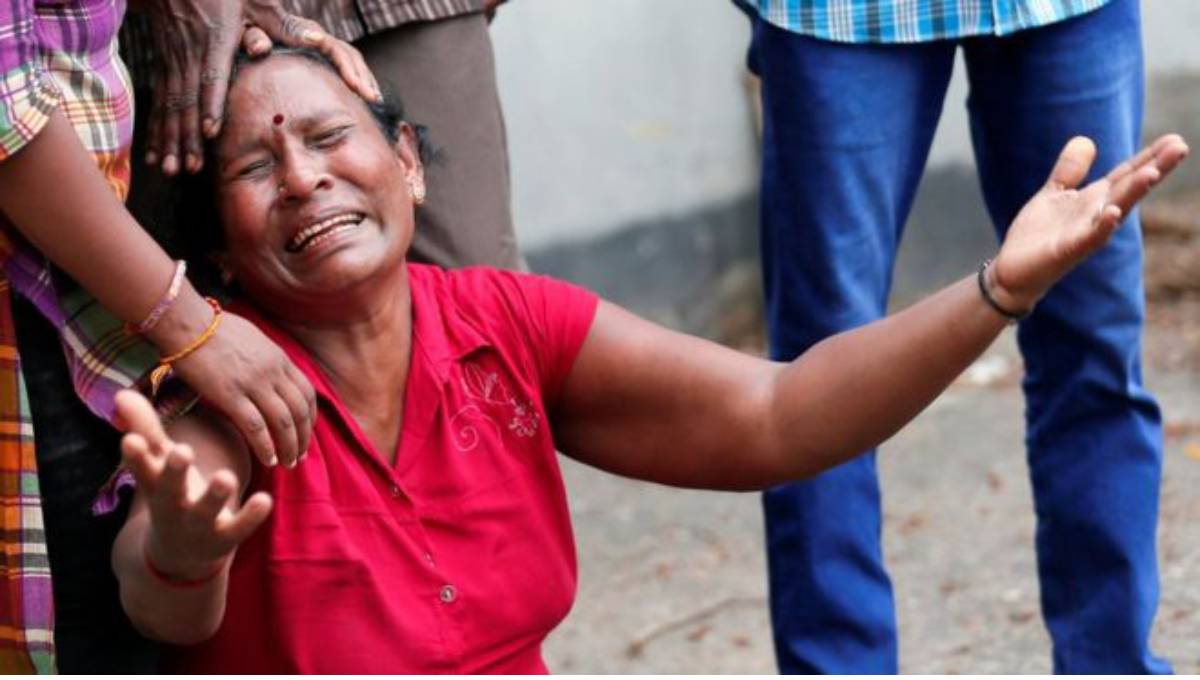Dhaka, Apr 22 : The death toll in Sri Lanka has soared to 290 after a wave of blasts hit churches and luxury hotels across the country on Easter Sunday, reports BBC.
Police said that 24 arrests have now been made, but the government has not yet identified who carried out the attacks.
About 500 people are injured and dozens of foreigners are among the dead.
The country is in shock after the bombings, the deadliest violence since the end of the civil war in 2009.
There are reports of social media networks being temporarily restricted to try and stop misinformation spreading.
Popular messaging services like WhatsApp and Facebook are said to be unavailable to many.
How did the attacks unfold?
The first reports of explosions came at about 08:45 (03:15 GMT) local time – with six blasts reported within a small space of time.
Three churches in Negombo, Batticaloa and Colombo’s Kochchikade district were targeted during Easter services and blasts also rocked the Shangri-La, Kingsbury and Cinnamon Grand hotels in the country’s capital.
As police hunted those responsible, two further explosions were reported.
One blast hit near the zoo in Dehiwala, southern Colombo, and an eighth was reported near the Colombo district of Dematagoda during a police raid, killing three officers.
Late on Sunday, the air force said an improvised explosive device had been found and disposed of close to the country’s main airport in the capital, Colombo.
“A PVC pipe which was six feet [1.8m] in length containing explosives in it was discovered,” spokesman Gihan Seneviratne told local media.
What’s known about the attackers?
It remains unclear who was behind the attacks, but 24 arrests were made by police.
The government has said they believe suicide bombs were used at some of the sites.
During a news conference on Sunday evening, Prime Minister Ranil Wickremesinghe addressed rumours that officials had had prior intelligence of forthcoming attacks.
“We must look into why adequate precautions were not taken. Neither I nor the Ministers were kept informed,” he said.
“For now the priority is to apprehend the attackers,” he added.
Who are the victims?
The vast majority of those killed are thought to be Sri Lankan nationals, including scores of Christians who died at Easter church services.
The country’s Ministry of Foreign Affairs says it believes 36 foreign nationals are among the dead, with most still unidentified at a Colombo morgue.
The international victims include:
At least five British citizens – including two with joint US citizenship
Three Danish citizens
One Portuguese citizen and three Indian nationals, according to Sri Lankan officials
Two engineers from Turkey, according to Turkish news outlet Anadolu
One person from the Netherlands
One person from Japan, according to Japanese media citing government sources
How has the world responded?
World leaders have been offering their shock and condolences to Sri Lanka over the deadly blasts.
Several prominent international monuments, including the Eiffel Tower, were dimmed or lit in Sri Lanka’s colours in solidarity on Sunday night.
Pope Francis, in his traditional Urbi et Orbi speech at the Vatican, condemned the attacks as “such cruel violence” targeting Christians celebrating Easter.
A spokesperson for UN Secretary General António Guterres said he was “outraged” by the attacks, and expressed his hope the perpetrators would be “swiftly brought to justice”.
India’s Narendra Modi condemned the attacks as “barbaric” while Pakistan’s leader Imran Khan also offered his “profound condolences” to Sri Lanka.
UK PM Theresa May wrote in a tweet that the “acts of violence against churches and hotels in Sri Lanka are truly appalling”.
US President Donald Trump tweeted “heartfelt condolences” for the “horrible terrorist attacks”.
The leader of New Zealand, where deadly mosque attacks killed 50 last month, labelled the bombings “devastating”.
“Collectively we must find the will and the answers to end such violence,” Jacinda Ardern said.
What is Sri Lanka’s recent history?
Sunday’s attacks are the deadliest seen in Sri Lanka since the end of the country’s civil war in 2009.
The civil war ended with the defeat of the Tamil Tigers, who had fought for 26 years for an independent homeland for the minority ethnic Tamils.
The war is thought to have killed between 70,000 and 80,000 people.
The nation has seen some sporadic violence since. In March 2018 a state of emergency was declared after members of the majority Buddhist Sinhala community attacked mosques and Muslim-owned properties.
Religion in Sri Lanka
Theravada Buddhism is Sri Lanka’s biggest religious group, making up about 70.2% of the population, according to the most recent census.
It is the religion of Sri Lanka’s Sinhalese majority, is given primary place in the country’s laws and is singled out in the constitution.
Hindus and Muslims make up 12.6% and 9.7% of the population respectively.
Sri Lanka is also home to about 1.5 million Christians, according to the 2012 census, the vast majority of them Roman Catholic.







